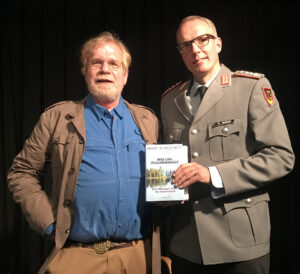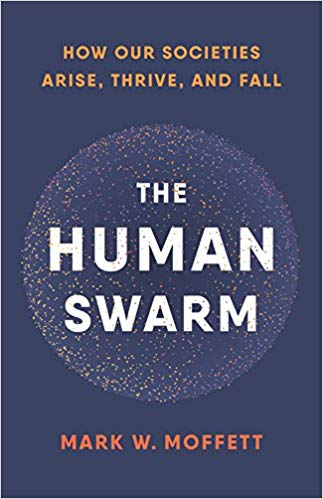Mark Moffett is a maverick...The Human Swarm is a book of wonders.
–New Statesman
An Amazon Editors’ Pick for a best history book
Imagine an airport filled with strangers peacefully going about their business. Fill that airport with chimpanzees instead of humans, however, and panic is certain, carnage likely. How do we humans coexist harmoniously with people we don't know?
Anthropologists studying the origins of human behavior have long turned to the chimpanzee for answers. The Human Swarm, however, goes where King Solomon once recommended: to the ant. The book suggests a simple explanation. In most species, the chimp included, every animal has to know every other member individually for a society to function. In ant societies, every worker is anonymous, a stranger, yet together they achieve extraordinary feats. Using ants and other species as a basis for comparison, Moffett distills the principles animating the anonymous societies of humans, revealing how friends and strangers alike interact based on signals given by such things as clothing, gestures, accents, beliefs—that mark their identity.
Moffett shows that just a few other vertebrate species, such as the sperm whale and pinyon jay, employ such markers for identifying with a society. He turns to hunter-gatherers and archaeology to find out how and why anonymous societies evolved in humans. Combined with current findings from anthropology, psychology, sociology, and history, the principles he describes explain how, despite our fear of outsiders, human societies can be as grand as the Mayan empires or the United States. And why, regardless of our ability to board airplanes to other countries and even have foreign friends overseas, the societies of humans, like those of other creatures, remain separate—and in time weaken and fall apart.
Moffett provides a new perspective on societies across nature and in humans right up to the present day. At a time when xenophobia is escalating into crises of group identity, The Human Swarm presents an urgently needed account of the forces that create and break human societies.
Reviews
Starred reviews from Publishers Weekly, Library Journal, and Kirkus Reviews.
“A book of wonders” New Statesmen.
“An enticing whirlwind tour of the fascinating structures of societies revealed through the varied lives of people and animals across the globe” Nature.
"Moffett looks at traditional theories of how and why human societies evolved—because Homo sapiens can deliberate, coordinate, and collaborate—and proposes an even more fundamental reason: humans’ distinctive manner of establishing identities.”Harvard magazine.
A “great book for thinking about how we got into this mess” Amy Tan, New York Times.
"A magisterial work of monumental importance” Scientific American columnist Michael Shermer.
“A tour-de-force” Donald Johanson, author of Lucy.
“[An] uplifting perspective... mesmerizing” Financial Times.
"A delightfully accessible and ingenious series of lessons on human societies" Kirkus Reviews.
“Moffett’s book [falls] into the epic achievement category” Forbes.
"This highly readable book is ambitious in its interdisciplinary breadth, rigorous in its science, and deeply thought-provoking in its implications" Robert Sapolsky, author of Behave.
"This is a book of amazing ideas, many of them counterintuitive. Mark Moffett's astounding stories of animal societies persuaded me that the future of human cities have been foretold by the ants. Read this manifesto if you like to have your mind changed" Kevin Kelly, founder of Wired magazine.
“A remarkable intellectual achievement of sustained intensity, to be commended for navigating an important yet difficult area in between biology, psychology, sociology, economics, history and philosophy.” Quarterly Review of Biology.

One of my first lectures for The Human Swarm was at the Militärhistorisches Museum in Dresden, Germany, where I spoke to military advisers on human identity and warfare. The issue of identity under extreme conditions was also the focus of the talk I gave at Goodard Space Center in Maryland.

